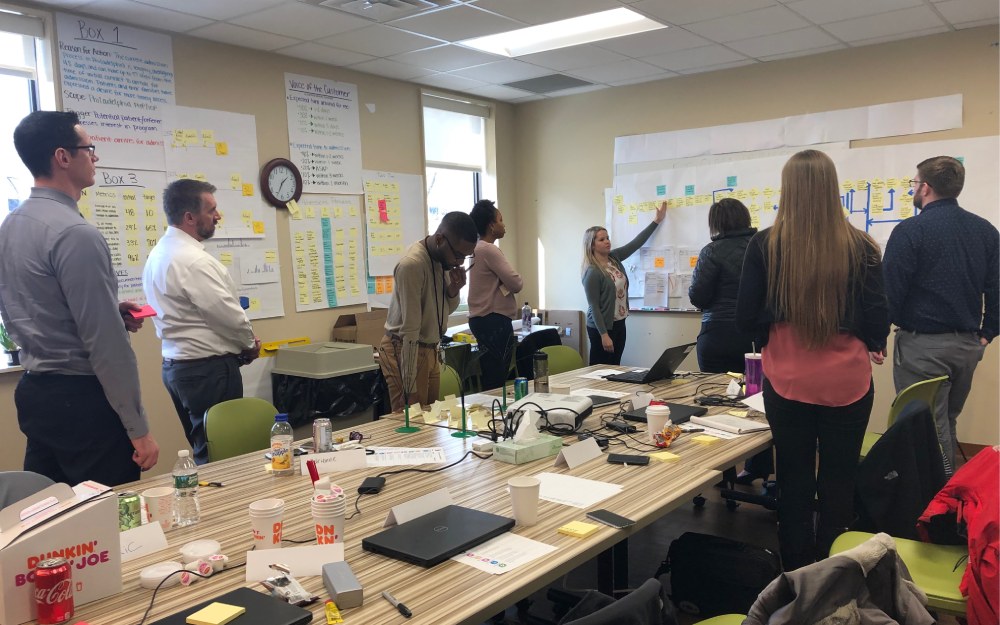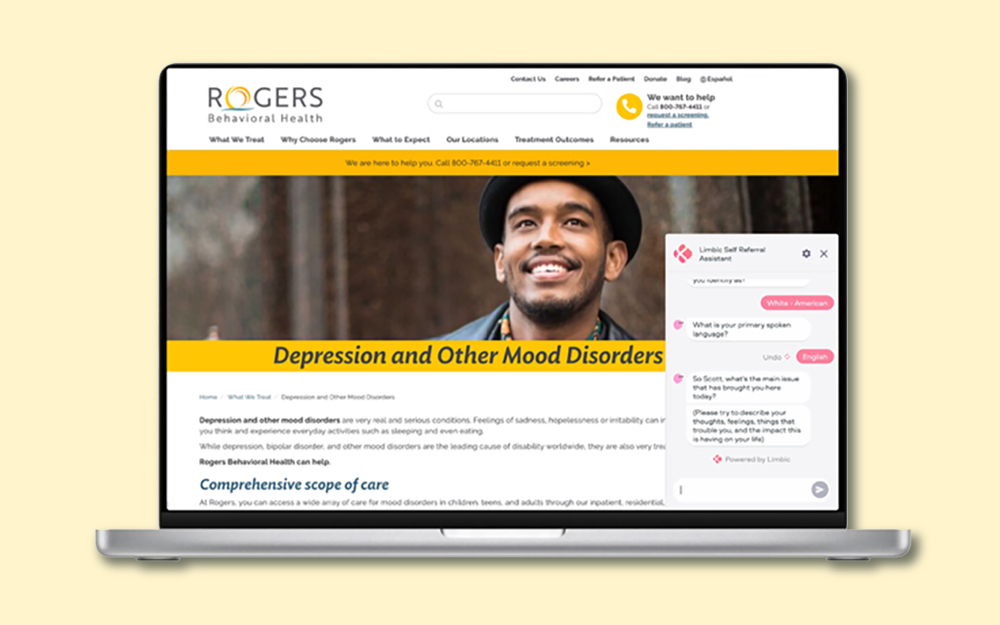
Rapid improvement event in Philadelphia tackles the regional admission process
07/18/19 03:00:pm
Rogers’ first regionally hosted rapid improvement event was held recently in Philadelphia, where they worked to reduce admission time at regional outpatient centers.
With the exception of a few veterans, this was the first RIE for the majority of participants. Tabitha Lennon, regional admissions services supervisor, says that the goal was to stick to the regular RIE rules of having people who were experts, suppliers, customers, and fresh eyes. Brian Haney, director of operations in Philadelphia, says the first timers had an “incredibly positive reaction” to being included.
Having participated in RIEs in Wisconsin, Brian found that holding the event in Philadelphia was beneficial to the work they were doing. This also fits into a major theme of the Rogers Improvement System of spending time in the gemba—a Japanese word that translates to “the real place” or going to where the work is done.
“The fact that we could leave the conference room and go interview intake staff, physicians, or even a patient was very impactful,” Brian says. “I also think that working in a regional location can feel like you’re on an island sometimes. You hear about initiatives through the intranet and newsletter, but when it’s brought to you and staff get to see it, it’s very powerful.”
Brian organized a lunch one of the days and invited other team members in Philadelphia to learn more about the RIE process and meet with the participants, which he says had a significant impact.
Across the Rogers system, there is an initiative to work toward providing same-day and next-day admissions. Scott Johnson, chief operating officer, Midwest and Eastern Region, and Tabitha began collecting data on regional admission times last year. The average time between the initial call and when a patient would admit in Philadelphia was 48 days—with other regional locations having similar numbers.
“We were tracking this week by week,” Tabitha says. “And we recognized that there was a need to improve across all locations.”
It was decided that Philadelphia would host and be the main focus of the RIE, as two new intake staff members were coming aboard around the same time and it was seen as “an opportunity to kick the old habits and start new, better ones” according to Tabitha.
The team created a process map identifying up to 57 steps for a regional admission. They were able to whittle this down to 25 steps and from there chose eight to focus their efforts on. While the long-term target is to work toward same- and next-day admissions, the RIE leadership team picked 10 business days from the first call to admission as the goal to shoot for using solutions created by the event. The metric was determined by surveying people during their screenings about their expectations.
The results from the event’s 90-day report out show improvements in several categories. One of the goals the team hoped to achieve was receiving a recommendation back from the medical staff within one business day of a screening. The target for this was set for 70% but for several weeks before the report out, the Philadelphia team was hitting 100%.
The “10 business days to start” benchmark has not been met yet, but significant steps have been taken toward hitting this goal. Results for other goals related to the number of business days from initial contact to admission, percent of time of initial contact to ASI, and percentage of admissions staying within the initial program for at least 10 days have also improved.
There are a number of things that can delay someone’s admission—such as not enough capacity or staff—but not everything is within the control of Rogers. One of the most surprising factors to Brian was ambivalence.
“When we call people to let them know that there’s a spot open, we’ll receive responses of ‘not right now,’” Brian explains. “We’re trying to address that, but people will choose to defer their mental health treatment for vacation or to wait until school is over, which can create a host of issues. We’re working on ways to communicate the importance of starting treatment when someone is experiencing serious symptoms.”
Part of the screening process now includes a question about how willing a potential patient would be to admit within 24 hours to see how motivated they are to receive treatment.
The steps taken by Philadelphia are a step in the right direction, and plans are already in place to spread the solutions from Philadelphia to other locations. There are also ongoing talks between regional leadership and the Rogers Improvement System to identify future events that can be held at another regional location in the future.
“There is a need to separate and have different events for regional clinics because we’re not all functioning the same way,” Tabitha says. “While we do want to standardize, the way we operate in the regional clinics is significantly different than how our main hospitals function.”





